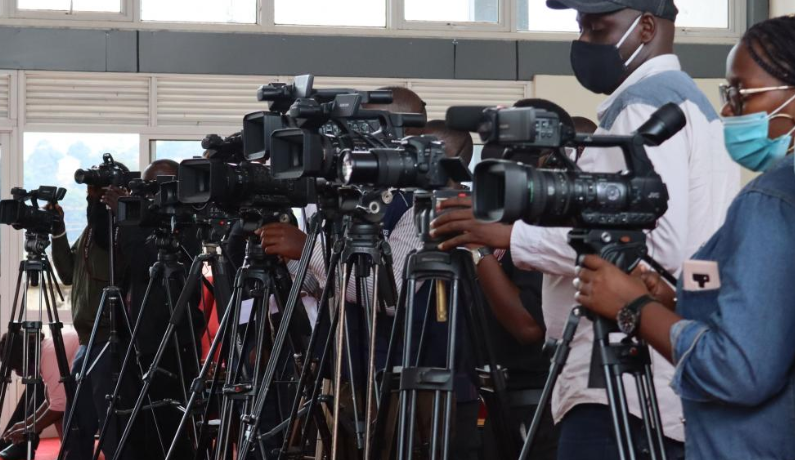AMURIA– National Union of Women with Disability [NUWODU] has appealed to the media in Uganda to bolster the coverage of persons with disabilities [PWDs] but also report positively on this segment of the population.
May Nanziri, the NUWODU Programme Officer Amuria Cluster, said the media coverage of PWDs has not been impressive and has misrepresented the PWDs in some instances.
She explained that increasing media coverage on disability issues and use of a positive non-discriminatory language when reporting on PWDs, is a good step toward changing the narrative of derogatory, stigmatisation and discrimination against PWDs.
Nanziri made the statement this week during training of 40 selected journalists from different media houses in Teso sub-region on inclusive reporting held at Petua Gardens in Katakwi district.
The training follows continued discriminatory language being used by a section of the public in describing PWDs and mental health conditions.
The participants were sensitised on topics such as; Understanding the disability situation in Uganda, Models of Disabilities and Needs, and rights of people with disabilities.
According to Nanziri, language, religion and culture remained the topmost factors influencing stigmatization and discrimination, which had a huge impact on self-esteem, adding that the media had a major role to play in those areas.
She said that sometimes disability is a perspective and that persons with disabilities should be addressed by their personality and not by their condition.
Nanziri urged journalists to be the agenda setters by ensuring that laws around disability were functioning as stated in the Constitution as this can help break the barrier and build an all-inclusive system.
Nanziri observed that many great stories about disability go unpublished, yet such challenges, woes, and stories of PWDs need to be heard.
He pointed out that there is need for the media to allow PWDs to speak for themselves other than allowing their guardians to speak for them. “They have a story to tell. Some of the stories are very revealing,” she said.
Kenneth W. Massa, the facilitator of the training educated the participants on the need for a paradigm shift in reporting disability issues, particularly where persons with hearing impairment are called the “Dumb”.
He stressed that the negative language is fueling the stigma and discrimination against such persons.
“Treat adult PWDs as adults, ask them how they want to communicate, don’t just assume. Be patient with them and understand their position as PWDs, don’t even offer to help when they have not asked for it,” Massa advised.”
Massa implored participants to set the agenda of positive language and the promotion of the success stories of persons living with disability, rather than dwelling on their challenges to make headlines.
Meanwhile, Sarah Aguti, the Programme Officer NUWODU Katakwi district, stated that society would continue to look down on PWDs because of the negative way in which the media describes them.
She urged the media to focus on the positives of the disability community, citing the example of PWDs who have made it in life; for instance, in the academic circles where some of them had attained the highest levels of education.
Aguti also regretted that PWDs do not have access to some government buildings as they lack disability-friendly structures such as elevators, which said is a complete violation of PWDs’ fundamental rights.
Martha Aanyu, the Programme Manager at Kyoga Veritas (KVR) Radio in Soroti City said most journalists do not know the right words to use while writing stories involving PWDs.
“I’m sure that with the knowledge we have attained in this training today, there will be a paradigm shift in reporting disability issues in our respective media houses,” she said while speaking on behalf of journalists.
NUWODU is implementing a five-year AWESOME project in Katakwi and Amuria districts.
The project focuses on strengthening the women’s movement in Uganda to be more representative of diverse groups of women with collaboration advocacy voices that challenge social norms and influence policies and key decisions affecting them.
https://thecooperator.news/uganda-kenya-border-pwds-agree-to-work-together/
Buy your copy of thecooperator magazine from one of our country- wide vending points or an e-copy on emag.thecooperator.news
